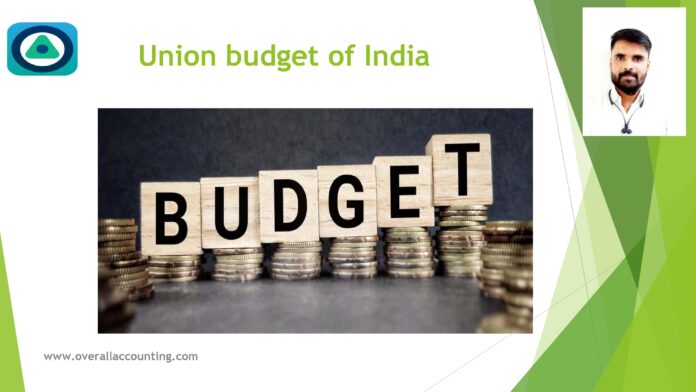All about upcoming Indian Budget 2023
Etymology and definition:
The word budget comes from the Old French word bougette meaning “small leather purse”, which in turn is a diminutive of the Gaulish bouge for “leather pouch, purse”. Its first use in our contemporary understanding of a financial plan comes from the pamphlet The Budget Opened by William Pulteney, which uses the term budget to describe and critique the governments’ fiscal policy on wine and tobacco.
The common usage of the word “budget” refers to a financial plan by an individual or an organization based on their projected income and expenses. By extension, it also is used in the sense of the amount that individual or organization has available to spend.
Government:
The budget is prepared by the Budget Division Department of Economic Affairs of the Ministry of Finance annually. The Finance Minister is the head of the budget making committee. The present Indian Finance minister is Nirmala Sitharaman. The budget of a government is a summary or plan of the intended revenues and expenditures of that government
The first budget of India was submitted on 18 February 1860 by James Wilson. P C Mahalanobis is known as the father of Indian budget.
Union budget of India
The Union Budget for 2023-24 will be presented in the Lok Sabha by the finance minister Nirmala Sitharaman on February 1st. As per Article 112 (1) of the Constitution, the Budget or the Annual Financial Statement contains the estimated receipts and expenditure of the Government of India in respect of a financial year, which starts from 1 April and ends on 31 March.
The Union Budget gives the actual expenditure for the preceding year, the revised estimates for the current year and the budget estimates for the next year.
Budget Speech
The speech can be divided into two parts.
Part A spells out the finance minister’s expectations and reform direction for the coming financial year.
It announces various planned schemes and measures for farmers, rural sector, health, education, small and large businesses, service sector, women, start-up, banks and financial services, capital markets, infrastructure and others like divestment, fiscal deficit, how much the government will borrow from bond markets, among other things.
Part B of the budget carries direct and indirect tax announcements
(excluding GST, which does not come under the purview of the budget, but instead is decided by the GST Council). This is the part where any changes in income tax slabs, corporate tax, capital gains tax, custom and excise duties are announced.
And Part B gives, in brief, the breakdown of the tax announcements, and the budgeted spending on various schemes, programmes and ministries. And for the past two years, the annex has been containing something very important. How much of the budget is being funded through extra-budgetary resources, apart from the tax and non-tax revenue and borrowing programme.
Key terms you should know ahead of FM’s speech
Annual financial statement
The key document of the Budget, the compilation comprises three government accounts — public account, consolidated fund and contingency fund — for which the government has to mention the expenditure and income for a financial year. Apart from this, the document includes other receipts and expenditures.
Public account
This is a fund where the government plays a banker for the citizens. All public savings like provident fund, small saving schemes etc are deposited into this public account.
Consolidated fund
This is the main account from which the government facilitates its revenues. From this fund, the government finances loans and adds the receipts from loans. Most government expenditures are made from the consolidated fund.
Contingency fund
The money from this account is for complying with any unforeseen expenditures. The amount which is taken out from this fund has to be reimbursed with the money available in the consolidated fund.
Receipts and Expenditures
Revenue expenditures are termed to be the expenses which the government requires to run the business as usual and pay the interest on debt and subsidies.
Capital | Receipts and Expenditures
Capital expenditures are incurred by the government for acquiring assets and investments and loans and advances to the state governments.
GK 10 Questions and Answers on Union Budget
- Who presents the Budget in the Parliament?
- Home Minister
- Prime Minister
- Finance Minister
- President of India
Answer (3)
Explanation: The Union Budget is presented by the Finance Minister in the Parliament
- Who presented India’s first-ever Budget?
- James Wilson
- C Rajgopalachari
- Jawaharlal Nehru
- Lord Mountbatten
Answer: (1)
Explanation: James Wilson, the British economist presented the budget on February 18, 1860. He introduced three kinds of taxes- income tax, license tax and tobacco duty. The first budget of India was submitted on 18 February 1860 by James Wilson.
- Where is the Budget introduced in India every year?
- Rajya Sabha
- Lok Sabha
- Joint session
- Rashtrapati Bhawan
Answer: (2)
Explanation: The Union Budget will be presented in the Lok Sabha by the finance minister.
- An annual statement of the estimated receipts and expenditure of the government over the fiscal year is known as
- Budget
- Income estimates
- Account
- Expenditure
Answer: (1)
Explanation: The common usage of the word “budget” refers to a financial plan by an individual or an organization based on their projected income and expenses.
- Which of the following is an example of direct tax?
- GST
- Excise duty
- Entertainment tax
- Wealth tax
Answer: (4) Wealth tax
- What is the period of a fiscal year?
- 1 April to 31 March
- 1 January to 31 December
- 1 March to 28 February
- None of these
Answer: (1) 1 April to 31 March
- When government spends more than it collects by way of revenue, it incurs ______
- Budget surplus
- Budget deficit
- Capital expenditure
- Revenue expenditure
Answer: (2) Budget deficit
- The fiscal deficit is the difference between the government’s total expenditure and its total receipts excluding ______
- Interest
- Taxes
- Spending
- Borrowings
Answer: (4) Borrowings
- What is the annual statement of the government’s fiscal revenue and fiscal expenditure known?
- Budget
- Fiscal Budget
- Capital Budget
- All of these
Answer: (2) Fiscal Budget
- The amount collected by the government in the form of interest, fees, and dividends is known as
- Tax-revenue receipts
- Capital receipts
- Non-tax revenue receipts
- None of these
Answer: (3) Non-tax revenue receipts
In case of any query, please feel free to contact us on this email enquiry@overallaccounting.com








